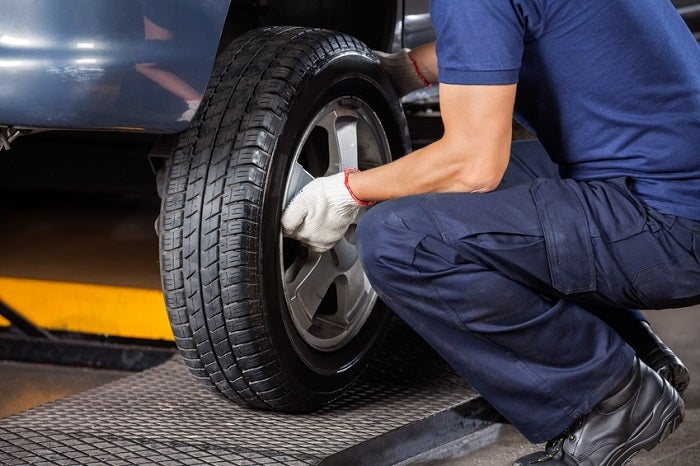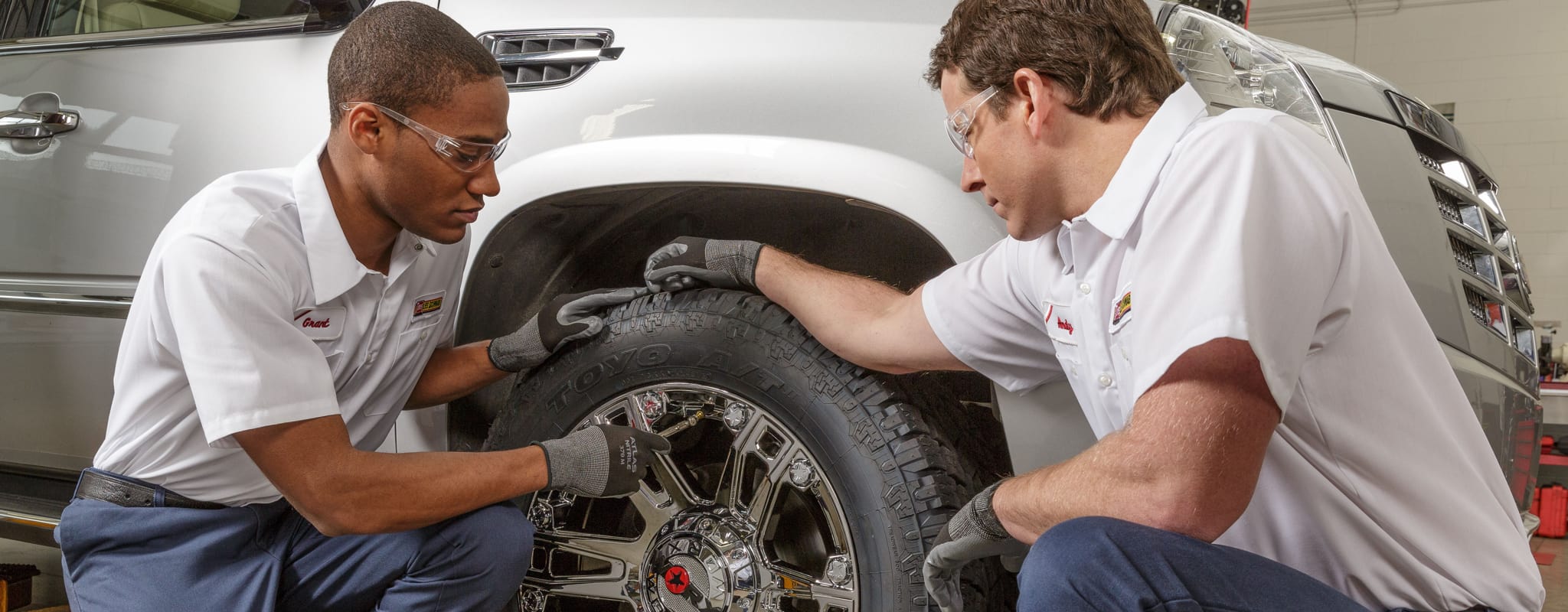Drive with Confidence: GMC Tires Service at Morris Tires
Drive with Confidence: GMC Tires Service at Morris Tires
Blog Article
Tire Service: The Influence of Weather
When it involves making sure optimal performance and security on the road, recognizing the impact of weather on tire solution is critical. From scorching warm to icy roads, each climate aspect can considerably affect tire performance and overall driving experience. By diving into the effects of differing weather on tires, motorists can gain beneficial insights that may boost their automobile's efficiency and longevity. In this conversation, we will certainly discover the detailed partnership in between weather and tire service, clarifying the importance of weather-specific tire maintenance methods and factors to consider.
Warm and Tire Efficiency
When revealed to high temperature levels, tires experience adjustments in efficiency that can considerably affect lorry security and handling. The warmth generated from prolonged driving or hot weather conditions causes the tire rubber to soften, leading to lowered step life and increased wear.

Winter Effects
Winter conditions can have a substantial effect on tire efficiency and safety and security. As temperatures drop, tire rubber can set, resulting in decreased traction on icy or snow-covered roadways. In chilly climate, tires might likewise shed atmospheric pressure more quickly, which can influence dealing with and gas effectiveness. Additionally, cold temperatures can trigger tire sidewalls to stiffen, enhancing the threat of damage from splits or other roadway risks.
To mitigate the effects of winter on tires, it is important to consistently inspect tire stress and inflate them to the producer's advised levels. Using winter or all-season tires created for winter conditions can also improve traction and grasp on icy or snowy roads. Correct tire upkeep, consisting of routine assessments for wear and damages, comes to be much more crucial during colder months to make certain ideal efficiency and security.
Rainy Conditions Influence
Tires with worn-out treads are extra prone to hydroplaning, where a layer of water builds up in between the road and the tire surface area, leading to loss resource of grip. To battle this, chauffeurs should routinely inspect their tires for ample walk depth and think about spending in tires particularly made for damp conditions.
Additionally, rainy weather can also decrease visibility, making it challenging for vehicle drivers to see the road ahead clearly (GMC Tire Service). In such conditions, it is necessary to adjust driving speeds as necessary and preserve a secure following range to permit abrupt quits. Properly filled with air tires can additionally aid in maintaining control on damp roadways by giving better handling and grasp
Snow and Tire Security
Snow-covered roads present special challenges for vehicle drivers, highlighting the significance of appropriate tire choice and maintenance. When driving in snowy conditions, having the appropriate tires can make a considerable difference in security and performance. Winter months tires learn the facts here now are developed with special rubber compounds and tread patterns to give far better grip on snow and ice compared to all-season tires. The deeper treads and sipes of winter months tires help hold the road much better, minimizing the danger of gliding and sliding.

It is vital to adhere to manufacturer instructions when installing and making use of tire chains to avoid damages to the tires and vehicle. By choosing the appropriate tires, preserving proper rising cost of living, and thinking about extra traction aids like tire chains, motorists can boost their safety when browsing snow-covered roadways.
Weather-Related Tire Upkeep
Weather-related tire maintenance encompasses an array of methods intended at guaranteeing optimum tire feature and long life in different weather situations. One vital facet of weather-related tire upkeep is tire stress policy. Checking tire walk regularly and changing tires when tread wear reaches a particular depth is important for maintaining grip and stability in unfavorable climate.
Verdict
To conclude, climate condition have a substantial effect on tire efficiency and security. From warm affecting tire stress and wear to cool weather condition minimizing grip, it is important to take into consideration the weather condition when keeping and utilizing tires. Stormy problems can lower hold and bring about hydroplaning, while snow can enhance the danger of crashes if tires are not appropriately equipped. Weather-related tire upkeep is vital in guaranteeing optimum performance and safety when traveling.
In this discussion, we will check out the intricate partnership in between climate conditions and tire solution, shedding light on the significance of weather-specific tire maintenance practices and considerations.

Report this page